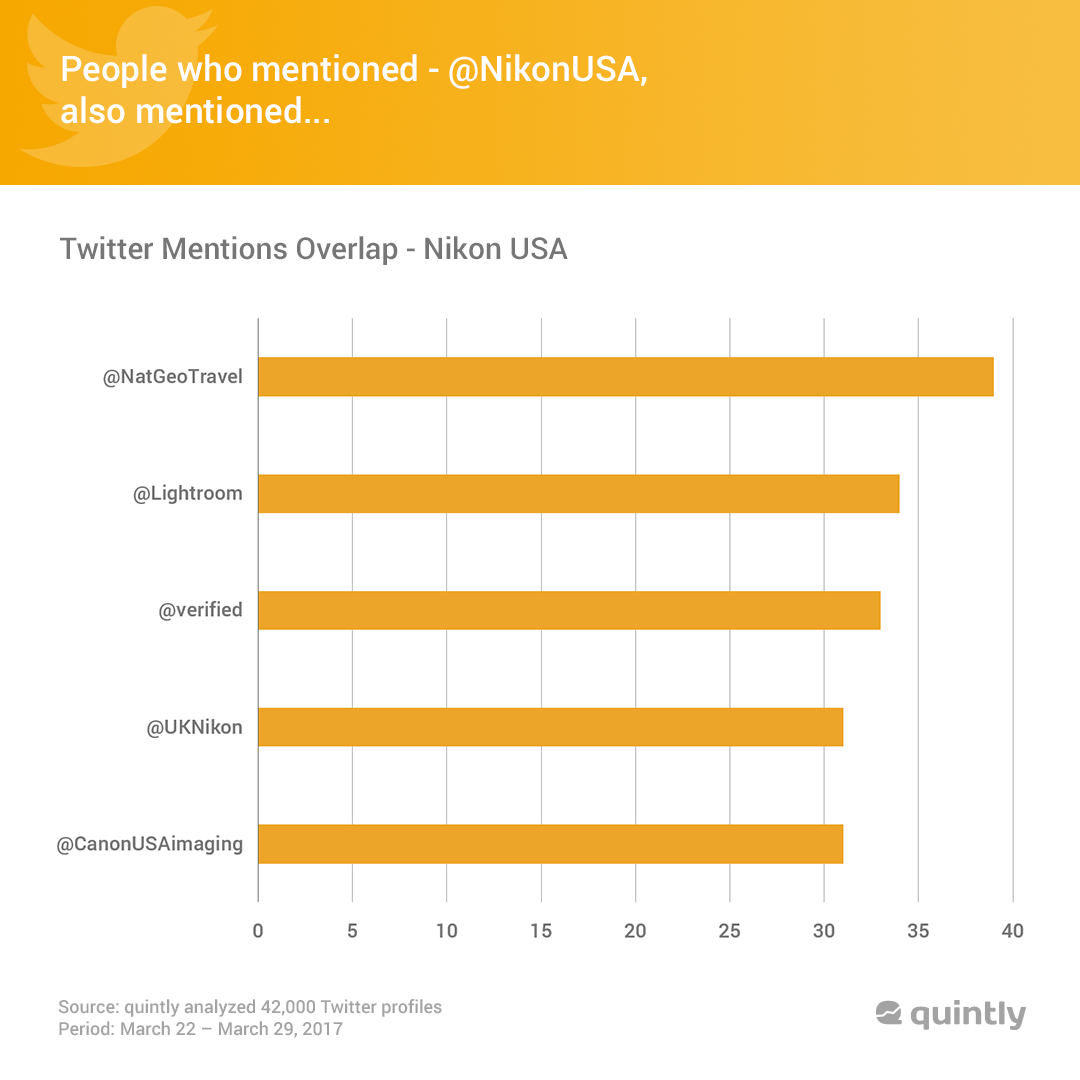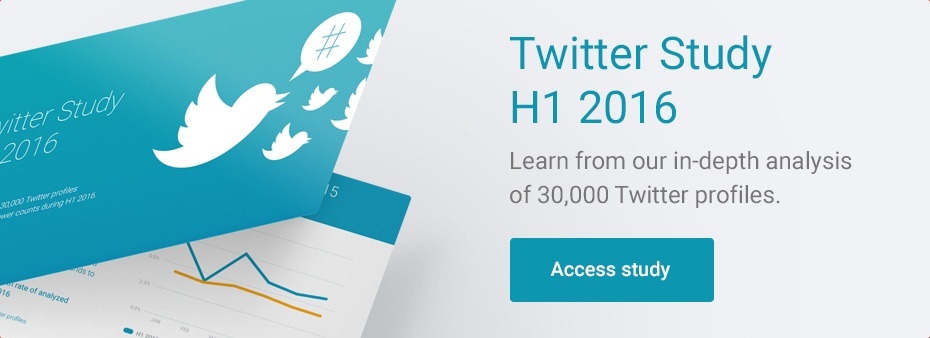
Today, we proudly present to you our new “Twitter Mentions Overlap” feature. With the help of this metric, you can learn more about your active community interests by knowing what other companies they are talking about. You’re probably curious: what questions specifically can we answer with this metric?
Let me give you a brief example. Imagine you want to find out more about your users by knowing what other brands, beside yours, they are mentioning on Twitter. This is exactly what our metric does. You can learn from this metric that people that are interested in “Buffer” are also interested in “Social Media Today” or other related blogs / sites. Through this knowledge, it is possible to make better marketing, PR and advertising decisions. All in all that pretty sounds cool, right? But how does the new metric work and more importantly how can you access this valuable data in your quintly account?
This can be a vital part of your process to measure your Twitter performance.
How does it work?
Ok, we’ve done the groundwork, but let’s now take a look at the metric itself by using an exact example. For this, we shot a video for you that covers everything you need to know about our new metric, as well as how to add the metric to your quintly dashboard. Have a look at our newly launched metric in action.
To get into more technical detail, just head to our Knowledge Base to find out more about the metric. By guiding you through the process with another use case, you will get a deeper understanding of the mechanisms behind the metric.
Learn more about your audience
Imagine you as a brand or agency are active on Twitter, but you have the feeling you should know more about your users and their interests. In this case, the “Twitter Mentions Overlap” metric would come in handy because it helps you to answer this question by providing further information on your Twitter users.
Our new metric creates a relationship map between Twitter accounts, which give you an overview of which other brands were mentioned by people that also mentioned your Twitter handle. The outcome of this metric tells us more about the interests of your active users.
Taking the data into action
So besides knowing which accounts our active users have been in touch with, we can now also tell you which “other accounts” have a closer relationship with your brand. To show you an example of these, let’s take a look at the “Twitter Mentions Overlap” results for Nikon.

What you can see from our metric is an overview of the accounts that stand in a strong relationship with you and thus should be considered more important when learning about our active users’ interests. You might also consider including the top 3 brands in our upcoming marketing and advertising activities.
One last remark: since it is necessary to pull a huge amount of data for this metric, the period which can be analyzed is currently limited to seven days. Doing this ensures that we are able to process all the data effectively and efficiently.
Need more information on our new metric? Feel free to contact us via email or visit us on Twitter. Happy analyzing!


Join the conversation. Leave us a comment below!